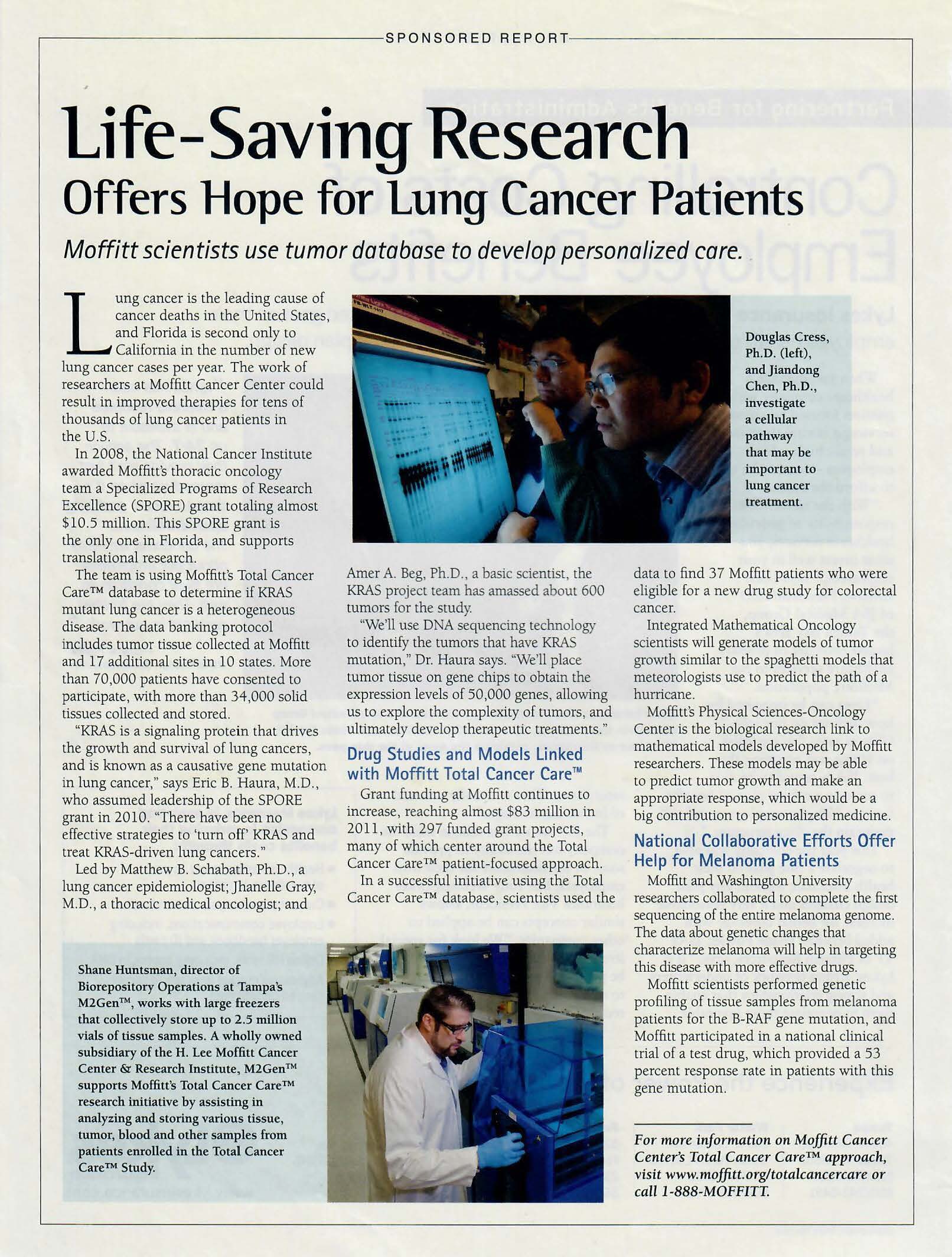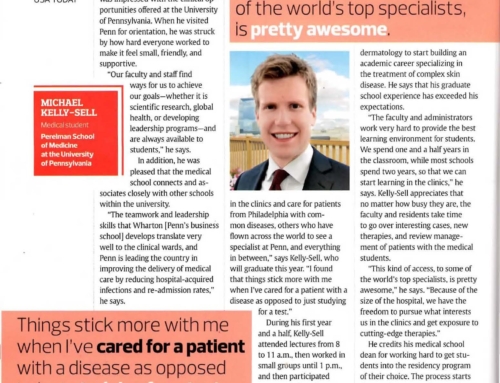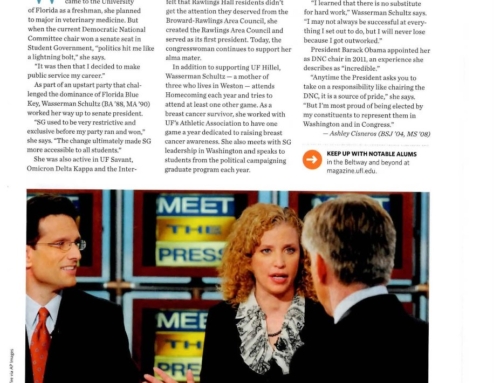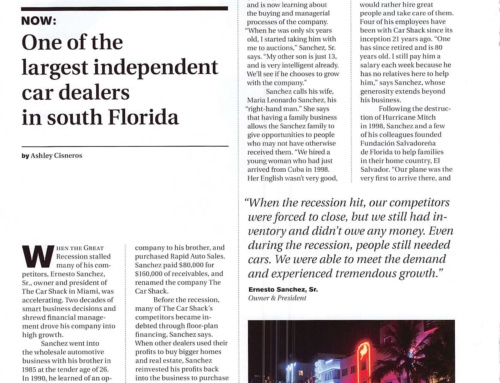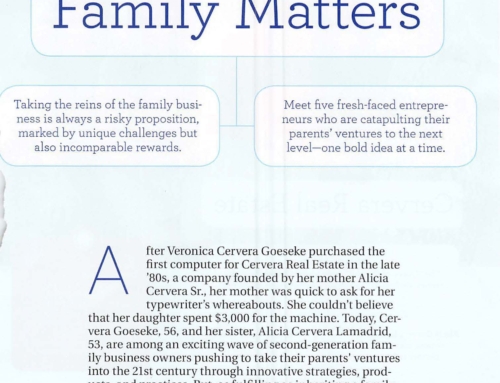Project Description
Life-Saving Research Offers Hope for Lung Cancer Patients
An advertorial discussing Moffitt Cancer Center’s use of its tumor database to develop personalized care.
Publication: Florida Trend Magazine
5/1/2011
LIFE-SAVING RESEARCH OFFERS HOPE FOR LUNG PATIENTS
Moffitt scientists use tumor database to develop personalized care
Lung cancer is the leading cause of cancer deaths in the United States, and Florida is second only to California in the number of new lung cancer cases per year. The work of researchers at Moffitt Cancer Center could result in improved therapies for tens of thousands of lung cancer patients in the U.S.
In 2008, the National Cancer Institute awarded Moffitt’s thoracic oncology team a Specialized Programs of Research Excellence (SPORE) grant totaling almost $10.5 million. This SPORE grant is the only one in Florida, and supports translational research.
The team is using Moffitt’s Total Cancer Care™ database to determine if KRAS mutant lung cancer is a heterogeneous disease. The data banking protocol includes tumor tissue collected at Moffitt and 17 additional sites in 10 states. More than 70,000 patients have consented to participate, with more than 34,000 solid tissues collected and stored.
“KRAS is a signaling protein that drives the growth and survival of lung cancers, and is known as a causative gene mutation in lung cancer,” says Eric B. Haura, M.D., who assumed leadership of the SPORE grant in 2010. “There have been no effective strategies to ‘turn off’ KRAS and treat KRAS-driven lung cancers.”
Led by Matthew B. Schabath, Ph.D., a lung cancer epidemiologist; Jhanelle Gray, M.D., a thoracic medical oncologist; and Amer A. Beg, Ph.D., a basic scientist, the KRAS project team has amassed about 600 tumors for the study.
“We’ll use DNA sequencing technology to identify the tumors that have KRAS mutation,” Dr. Haura says. “We’ll place tumor tissue on gene chips to obtain the expression levels of 50,000 genes, allowing us to explore the complexity of tumors, and ultimately develop therapeutic treatments.”
Drug Studies and Models Linked with Moffitt Total Cancer Care™
Grant funding at Moffitt continues to increase, reaching almost $83 million in 2011, with 297 funded grant projects, many of which center around the Total Cancer Care™ patient-focused approach.
In a successful initiative using the Total Cancer Care™ database, scientists used the data to find 37 Moffitt patients who were eligible for a new drug study for colorectal cancer.
Integrated Mathematical Oncology scientists will generate models of tumor growth similar to the spaghetti models that meteorologists use to predict the path of a hurricane.
Moffitt’s Physical Sciences-Oncology Center is the biological research link to mathematical models developed by Moffitt researchers. These models may be able to predict tumor growth and make an appropriate response, which would be a big contribution to personalized medicine.
National Collaborative Efforts Offer Help for Melanoma Patients
Moffitt and Washington University researchers collaborated to complete the first sequencing of the entire melanoma genome.
The data about genetic changes that characterize melanoma will help in targeting this disease with more effective drugs.
Moffitt scientists performed genetic profiling of tissue samples from melanoma patients for the B-RAF gene mutation, and Moffitt participated in a national clinical trial of a test drug, which provided a 53 percent response rate in patients with this gene mutation.
For more information on Moffitt Cancer Center’s Total Cancer Care™ approach, visit www.mof.fitt.org/totalcancercare or call 1-888-MOFFITT.


